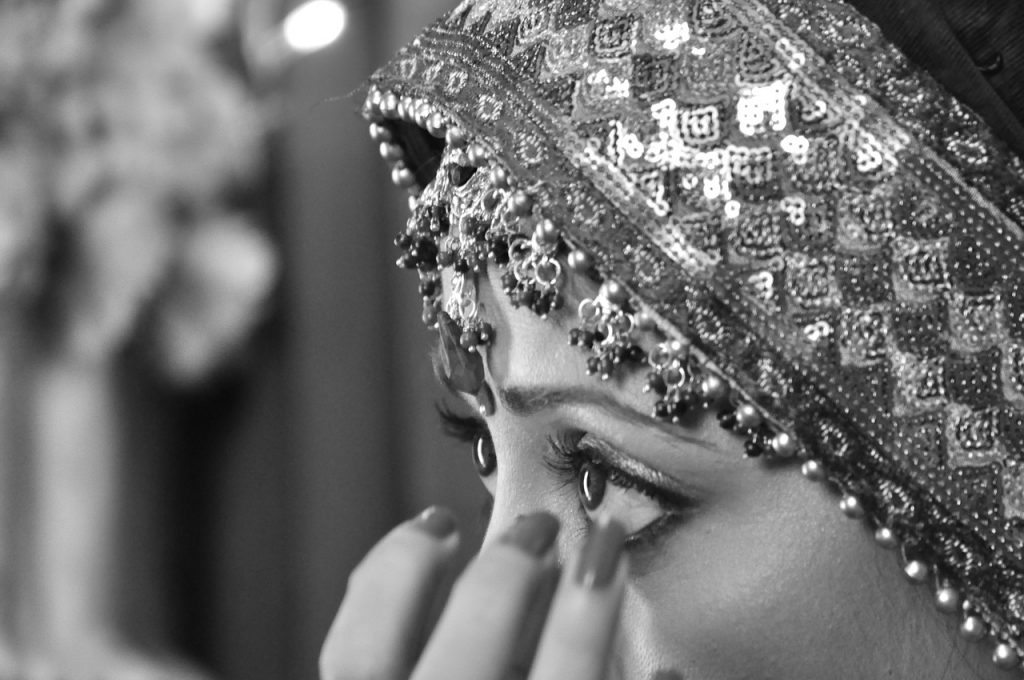
by Harshita Ganesh – Follow @harshikapoor17
As a South Asian female brought up in the United States, no one bothered to talk to me about relationships. No one bothered to talk to me about how to be safe and happy in a relationship or how to be safe and happy when having sex. But, I think I know why.
In our cultures, sex is bad. In our cultures, we don’t engage in relationships unless we are much older and our parents (mostly moms) give us the thumbs-up with the line, “Chal beta, ek accha sa ladhka dhoondo” (in Hindi: okay child, now find a nice boy). We are a very “conservative” culture, right? Sex is a very taboo, inside, behind-closed-doors topic, right? Wrong. Why? Because no one even talked to me about it behind closed doors. I will give my mother credit for trying, but the topic was too awkward to the point where all she could say is, “Don’t do it; it’s bad.” Confidently, I can also vouch for the fact that many of my brown sisters had the same experience.
But why is the subject so taboo anyway? Indians wrote the Kamasutra. Bollywood, Tollywood, and Kollywood celebrate item numbers. Film actors Emraan Hashmi and Sunny Leone garner the most whistles and late night attendance. Films directed by Mahesh Bhatt are given lots of praise for pioneering a new brand of cinema. Bollywood makes young girls dream about the perfect relationship and how relationships are always beautiful.
Ladies, mommies, aunties – I am not here to yell at you and make you feel bad because I know that you, yourselves, may not have a proper understanding of the subject either. When you don’t know, how can you properly teach your daughter? That is why your go-to’s are usually: “Don’t do it; it’s bad” or “It is only fine after marriage.” Let me tell you why this rhetoric is dangerous.
First, let’s start off with your logical fallacy: “Sex is only fine after marriage.” When you say this, you inherently imply that sex is bad before marriage. So if sex equals “bad,” how can sex eventually equal or become “good?” Only through marriage? Fair enough, pre-marital sex is “not proper.” The problem with this is that sex is made to seem like a dirty thing for most of your daughter’s life, and when she gets married, she will feel the exact same: dirty.
A piece of paper won’t flip a mental switch. Sex won’t feel good and she will go along with it as a “wifely duty.” There are so many things wrong with that. Without realizing it, she may endure sexual assault because she does not know the difference between keen consent and coercive sex – unknowingly leading to depression and an unhappy marriage.
Ladies, mommies, aunties, is this enough of a reason to educate me?
Ladies, mommies, aunties – I am about to tell you something very shocking. Teenagers will have sex. Indian teenagers will have sex. There is nothing much you can do about that. The more you tell them that it’s bad, the more likely it is to happen. What you can do is change the circumstance surrounding its happening. You can teach your daughter about safe sex. Give her access to birth control. Be open to having conversations with her about sex, so that when she is feeling uncertain, you are the first person she goes to. Help her open up to you, especially when she feels like she might be in a dangerous situation or, God forbid, already has been.
It is not easy to talk about these things, but every daughter wants to be able to talk to her mother about such topics. By being open, you are not encouraging her to have sex, but instead are removing the curiosity and guiding her in a positive way. Scaring her is not going to discourage her. More likely, this rhetoric will lead her into dangerous situations that she won’t be able to talk about. It will lead her to feel shame and resentment towards herself.
No one will care as much as her mom. If it is too uncomfortable of a conversation to have with your daughter, point her into the right direction to seek accurate information. Below are a few helpful websites and YouTube channels:
- Scarleteen
- Planned Parenthood
- Sex, Etc.
- Bedsider
- Sex + Laci Green’s youtube channel
- AVERT Sexuality and Safer Sex
Consider these statistics when questioning why it’s important to educate our girls: The Asian & Pacific Islander Institute on Domestic Violence conducted a study in 2000 with 160 South Asian women and asked them various questions pertaining to relationships and sexual encounters. 40.8% of the participants reported that a male partner had physically and/or sexually abused them in their lifetime. What was even more daunting is that 36.9% reported having been victimized in this fashion within the past year. Out of the women who had been sexually or physically abused, 19.5% reported showing signs of mental illness such as depression, anxiety, and/or suicidal thoughts within the last 30 days.[1] The most frightening aspect is that these numbers have not changed very much. If anything, they have gone up. The National Institute of Justice investigated this issues again in 2011, and out of a random sample of 143 Indian and Pakistani women, 64% had reported sexual abuse from their respective other.[2]
Ladies, mommies, aunties, is this enough of a reason to educate me?
All I am really trying to say is: please understand that it is your responsibility to teach your child to be autonomous when it comes to sex and relationships. Teach her that her body is her own. Teach her that not you, her father, nor her significant other makes sexual decisions for her. With the common South Asian rhetoric used to educate about sex, your daughter is told that she doesn’t control her own body. If not her own body, what does she control? I beg you, please educate your daughter on how to make her own sexual decisions. If you don’t, someone else will, and that never goes well.
Ladies, mommies, aunties, is this enough of a reason to educate me?
[1] “OJP Fact Sheet: Domestic Violence.” PsycEXTRA Dataset (n.d.): n. pag. Fact Sheet: Domestic Violence in South Asian Communities. July 2012. Web.
[2] Blazevski, Dabby C., and Yoshihama M. “Logo.” Statistics: Violence against API Women | Research & Statistics | Resources Publications Research Statistics | Asian Pacific Institute on Gender-Based Violence. N.p., n.d. Web. 27 Jan. 2017.
 Harshita Ganesh is a South Indian-Bollywood enthusiast; a princess who is here to fight patriarchy; a dancer; a pianist; and an explorer. Her main love is writing scripts on topics regarding empowerment and hopes to one day have one of her films made. She is currently an undergraduate engineering student in Europe and hopes to get a law degree soon after.
Harshita Ganesh is a South Indian-Bollywood enthusiast; a princess who is here to fight patriarchy; a dancer; a pianist; and an explorer. Her main love is writing scripts on topics regarding empowerment and hopes to one day have one of her films made. She is currently an undergraduate engineering student in Europe and hopes to get a law degree soon after.




